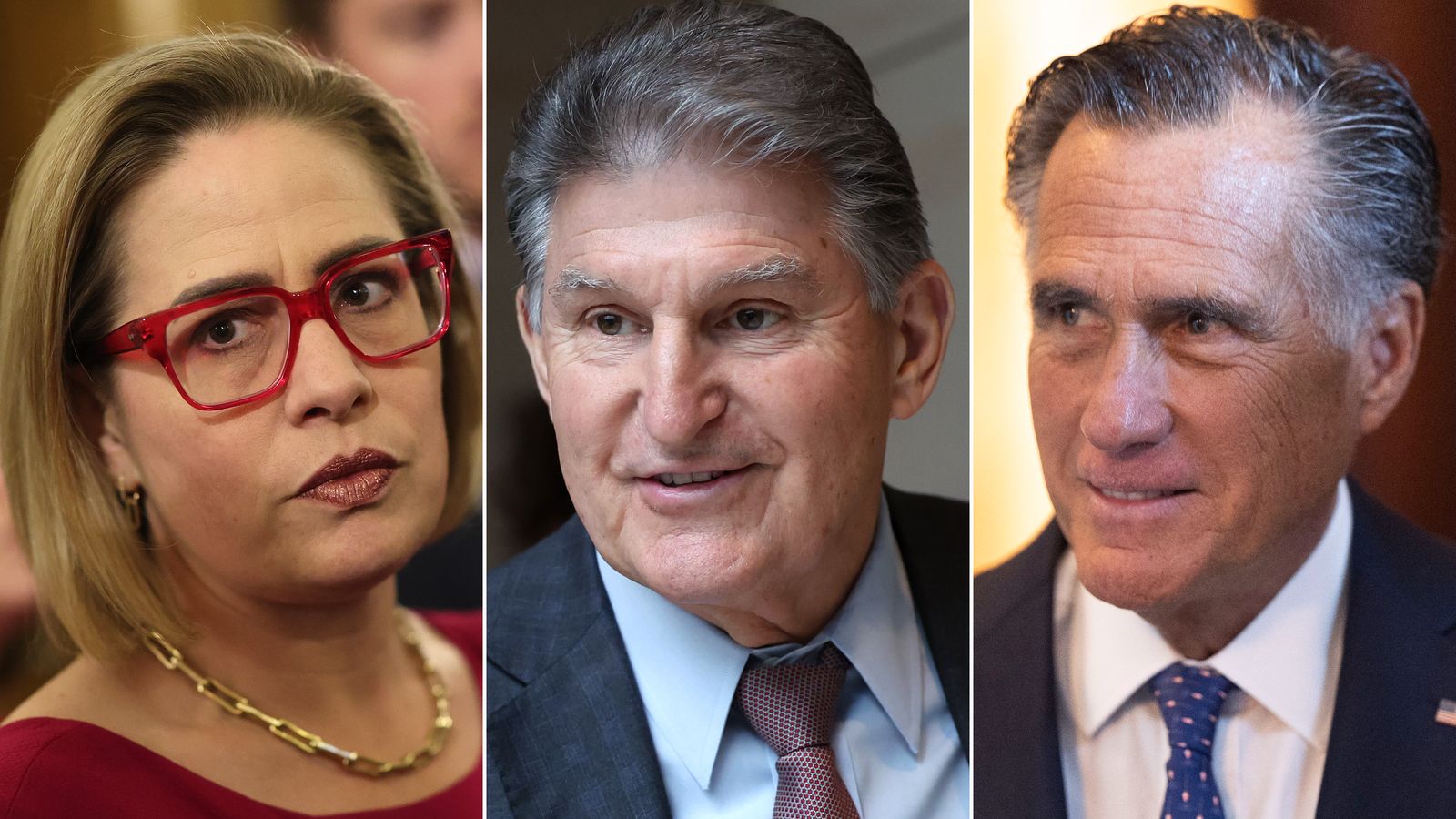Before Arizona’s independent Sen. Kyrsten Sinema made her public announcement of not seeking reelection, she had a conversation with Democratic Sen. Chris Murphy of Connecticut. The two senators, along with Republican Sen. James Lankford of Oklahoma, had spent months crafting a bipartisan immigration deal. Despite their tireless efforts, the deal was met with resistance and ultimately failed to pass.
When Sinema revealed her retirement plans to Murphy, she explained her belief that the American public was no longer interested in moderate, bipartisan lawmakers who broker deals. She argued that this model was outdated. Murphy disagreed, stating, “I don’t buy Sinema’s exit memo. She makes the claim that compromise is dead, but she helped forge some of the biggest, toughest compromises.”
While Sinema declined to elaborate on her retirement reasons, the diminishing middle ground in the Senate is undeniable. Over the past decade, senators who once viewed the institution as a place to enact laws are finding it increasingly difficult to even secure a vote on an amendment. Many senators admit that there are few political advantages to seeking consensus when party bases demand purity.
Republican Sen. Mitt Romney of Utah observed, “The base of each party wants individuals who will fight, but not individuals who will reach across the aisle to get things done.” This sentiment is echoed by the impending loss of three influential swing votes in the Senate: Democratic Sen. Joe Manchin, Sinema, and Romney himself.
The departure of these moderate senators is part of a slow trend. Last cycle saw the retirement of Ohio Republican Sen. Rob Portman, a key figure in the infrastructure deal and the Respect for Marriage Act. His seat was taken by Ohio Republican Sen. J.D. Vance, a Trump ally who has clashed with his own party leaders. Other pragmatic Republicans, including Sen. Richard Shelby of Alabama and Sen. Richard Burr of North Carolina, also retired after the 2022 election.
Despite the departure of these dealmakers, some senators remain hopeful that younger members can fill the void. Sen. Todd Young, a Republican from Indiana, expressed his hope for members who “have grown weary of just giving speeches and holding press conferences and appearing on television, but actually want to move legislation.”
However, the future of bipartisanship in the Senate remains uncertain. With the retirement of Sinema and Manchin, who both fought to preserve the filibuster, there is a possibility that the Senate could move to eliminate it entirely. This issue has already emerged as a key one in the Senate Republican leadership election.
As the Senate continues to evolve, the lure of attention-driven decision-making remains strong. The ease of using social media to communicate messages and fundraise off party positions that secure reelection is attractive for new lawmakers. As Murphy noted, “It is really easy to get sucked into that life, and it is easy to convince yourself that you are doing a good job if you are getting a lot of cable news appearances and getting a lot of follows online.”
In her retirement announcement, Sinema stated, “compromise is a dirty word” in today’s America. She added, “I believe in my approach, but it’s not what America wants right now.” Murphy, while understanding her perspective, disagreed, expressing his hope that she is wrong.

